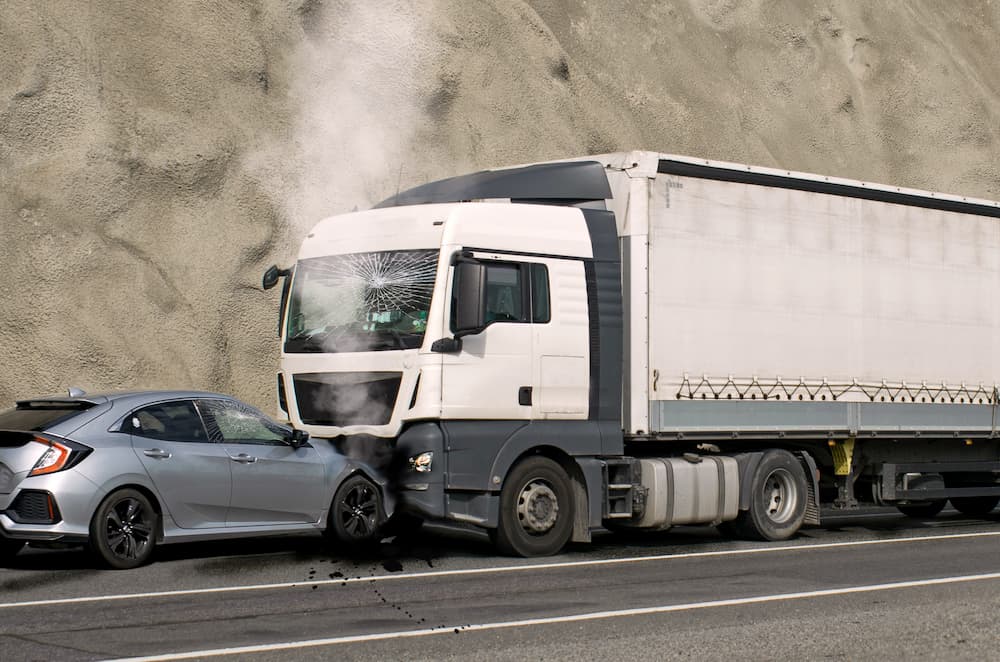- Our Take
- Understanding commercial auto insurance
- State Farm commercial auto insurance coverage
- Types of commercial vehicles State Farm insures
- Why choose State Farm commercial auto insurance?
- State Farm commercial auto insurance vs. other carriers
- How does State Farm commercial auto insurance pricing compare with the competition?
- Tips to save on State Farm commercial auto insurance
- How to buy State Farm commercial vehicle insurance
- Bottom line: Why go with State Farm for commercial auto insurance?
- Frequently Asked Questions
Our Take
State Farm, one of the 10 largest commercial vehicle insurers, allows small businesses to choose the agent they want to work with. The agent serves as a partner for their insurance needs, helping the business to identify and mitigate risks and to get the right policy for their needs. The company gets top marks from rating agencies AM Best for financial stability. However, the National Association of Insurance Commissioners (NAIC) has recorded a slightly higher complaint volume than expected for an insurance company of its size.
- The company provides a dedicated agent to help each small business get the right coverage for its needs.
- Credit rating agency AM Best gives State Farm an A++, its highest mark, indicating the insurer is in a great position to meet its financial obligations.
- The National Association of Insurance Commissioners has recorded a slightly higher number of complaints than expected for an insurance company its size.
Understanding commercial auto insurance
Small business auto insurance is necessary for company-owned cars, trucks and vans, and when you use a vehicle for business purposes. Personal auto insurance will not cover claims that happen when a driver is on the job.
A commercial auto insurance policy starts with coverage for liability claims. This includes damage and injuries to third parties, such as another vehicle or private property you may have hit. This component of commercial auto insurance is required by law in most states, with each state having minimum liability limits.
On top of liability coverage, you can also opt for comprehensive and collision coverage. Comprehensive coverage pays for damage to your vehicle that occurs from non-collision events such as theft or natural disasters. Collision coverage will pay to repair your vehicle after an at-fault accident.
State Farm commercial auto insurance coverage
State Farm, which has been around for more than 100 years, is the largest property and casualty (P&C) insurance company in terms of all premiums written and the eighth largest commercial auto company, according to the NAIC, the standard-setting and regulatory support organization overseen by the country’s top insurance regulators.
AM Best, a credit rating agency that measures financial strength, gives State Farm an A++ (Superior), its highest rating, indicating the company is in a great position to meet its financial obligations.
State Farm has several different commercial auto insurance coverages to consider.
- Liability: This coverage, as mentioned above, is mandated by law and will pay for injuries and damages to parties that you or your vehicle’s driver has hit.
- Collision: This pays for the repairs to your commercial vehicle after being damaged in an at-fault accident.
- Comprehensive: This pays for repairs needed when a vehicle is damaged in non-collision incidents such as theft, vandalism, fire or a storm.
- Uninsured/underinsured motorist (UM/UIM): Even though insurance is required by law, not everyone has coverage (or adequate coverage). This pays for repairs to your car when it is damaged in an accident where the at-fault party doesn’t have enough liability coverage.
- Medical payments: Pays for injuries to your driver and passengers regardless of fault in an accident. May work with workers’ compensation for employees.
- Rental car coverage: Provides an allowance to rent another vehicle to continue business operations while the insured vehicle is in the shop for repairs.
State Farm also offers 24/7 roadside assistance for commercial vehicles that may be stuck or stalled on the side of the road.
Types of commercial vehicles State Farm insures
State Farm offers coverage for a wide variety of commercial vehicles, including:
- Cars
- Trucks
- Vans
- Pickups
- Farm vehicles
You can also talk to a State Farm agent to get a quote for a fleet of business vehicles.
Why choose State Farm commercial auto insurance?
There are several reasons why a small business may want to choose State Farm commercial auto insurance.
- Dedicated agents: Unlike some carriers that allow you to get a quote and purchase a policy online, State Farm requires you to work with a local agent who can assist you with everything from getting a quote to managing your policy and filing a quote. Local agents can provide you with personalized service that you may not get by calling a carrier's customer service center.
- Financial stability: State Farm has an A++ (Superior) financial stability grade from rating agency AM Best, the highest possible. This indicates that the carrier can meet its financial obligations, including claims payments.
- Comprehensive coverage: Customers will find a wide variety of small business insurance products and coverage types for many companies. State Farm also sells personal auto insurance.
- Robust online resources: The company also offers a number of online guides to help commercial customers lower their insurance risks, including tips on emergency planning and on how various businesses, such as restaurants, contracting firms and salons, can prevent common causes of business losses.
- Nationwide service, 24/7 support: State Farm does business in all 50 states plus Washington, D.C., and operates a 24-hour customer service center.
State Farm commercial auto insurance vs. other carriers
State Farm is a large company known for its personal auto insurance, but it also has a 2.8% market share of the commercial auto insurance market, according to the NAIC. Progressive is by far the largest, with a 15% market share.
You can look to the NAIC for an unbiased qualitative comparison of insurance carriers. The NAIC publishes a complaint index for every registered insurance company. The complaint index expresses the number of complaints made against a company in relation to the company's market share. A score of zero means no complaints, while a score of one is the average number of complaints expected from a company based on its market share. Anything higher than one means the company gets more complaints than expected.
State Farm has a couple of companies registered with the NAIC. We looked at State Farm Mutual Automobile Insurance Company, which has an NAIC complaint index score of 1.4, slightly higher than you would expect for a company its size.
How does State Farm commercial auto insurance pricing compare with the competition?
State Farm does not offer pricing on its website but there is a module on the site that allows you to enter your ZIP code and get a list of nearby agents.
Pricing on commercial auto insurance policies depends on several factors, including what business you’re in, where your business is located, what type of vehicle you’re insuring, your driving history and that of your employees and your coverage options.
As a general point of reference, Insureon, an insurance broker that specializes in small business, has found that the average cost of a commercial vehicle policy is $150 per month.
Tips to save on State Farm commercial auto insurance
There are a few ways to save on State Farm commercial auto insurance.
- Accident-free discount: You can receive the accident-free discount after three years of continuous coverage without a claim.
- Good driving discount: You are eligible for this discount if your drivers have had no moving violations or accidents in the past three years.
- Multiple autos discount: You can get a discount when you insure more than one vehicle or a fleet.
- Vehicle safety discount: For all vehicles made in 1994 or newer, there may be a discount based on the make and model of the vehicle and its loss experience.
How to buy State Farm commercial vehicle insurance
State Farm makes it easy to buy a commercial auto insurance policy in just a few steps.
- Find a local agent: To buy a State Farm policy, you must contact a local agent for a quote. You can go to the company’s site or call (800) 782-8332 to be connected with an agent near you.
- Have your company information handy: When you call, be sure to have the pertinent information about the vehicles and drivers. You’ll need the vehicle's year, make, model and VIN for the most accurate quotes. You’ll also want to have driving histories for you and your employees.
- Review the coverage options with your agent: Make sure that you have enough coverage to protect your business in the event of an at-fault accident. You’ll likely want to protect your vehicle, so ask about collision and comprehensive coverage.
- Purchase your policy and activate it: Agents can bind coverage, so once you have a quote, all you need to do is pay the initial premium to start the policy.
Bottom line: Why go with State Farm for commercial auto insurance?
State Farm is an excellent choice for business owners who want to work with an agent. State Farm has a solid financial standing and a solid reputation for customer service. It’s widely available and offers a lot of different commercial policies to allow you to buy all of your business coverage in one place.
Frequently Asked Questions
Does State Farm offer discounts on commercial auto insurance?
State Farm offers several discounts for its commercial auto insurance, including accident-free, good driver, multiple auto and vehicle safety discounts.
Does State Farm offer a ‘vanishing’ deductible?
State Farm does not offer a vanishing deductible feature on its commercial auto policies, in which the deductible decreases over time if you avoid accidents and tickets.
Can I bundle my commercial auto insurance with other policies from State Farm?
While bundling commercial auto with other policies with State Farm can be convenient, there is no discount. State Farm’s commercial policies are independently rated and priced based on the business risk.





